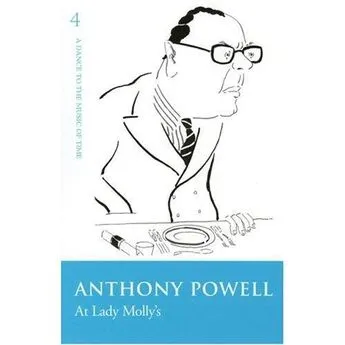Anthony Trollope - Autobiography of Anthony Trollope
- Название:Autobiography of Anthony Trollope
- Автор:
- Жанр:
- Издательство:неизвестно
- Год:неизвестен
- ISBN:нет данных
- Рейтинг:
- Избранное:Добавить в избранное
-
Отзывы:
-
Ваша оценка:
Anthony Trollope - Autobiography of Anthony Trollope краткое содержание
EBook of Autobiography of Anthony Trollope by Anthony Trollope (www.anthonytrollope.com)
Autobiography of Anthony Trollope - читать онлайн бесплатно ознакомительный отрывок
Интервал:
Закладка:
was the Postmaster-General and Mr. Rowland Hill, the Secretary of
the Post Office. I wanted leave of absence for the unusual period
of nine months, and fearing that I should not get it by the ordinary
process of asking the Secretary, I went direct to his lordship.
"Is it on the plea of ill-health?" he asked, looking into my face,
which was then that of a very robust man. His lordship knew the
Civil Service as well as any one living, and must have seen much
of falseness and fraudulent pretence, or he could not have asked
that question. I told him that I was very well, but that I wanted
to write a book. "Had I any special ground to go upon in asking for
such indulgence?" I had, I said, done my duty well by the service.
There was a good deal of demurring, but I got my leave for nine
months,--and I knew that I had earned it. Mr. Hill attached to
the minute granting me the leave an intimation that it was to be
considered as a full equivalent for the special services rendered
by me to the department. I declined, however, to accept the grace
with such a stipulation, and it was withdrawn by the directions of
the Postmaster-General. [Footnote: During the period of my service
in the Post Office I did very much special work for which I never
asked any remuneration,--and never received any, though payments
for special services were common in the department at that time.
But if there was to be a question of such remuneration, I did not
choose that my work should be valued at the price put upon it by
Mr. Hill.]
I started for the States in August and returned in the following
May. The war was raging during the time that I was there, and the
country was full of soldiers. A part of the time I spent in Virginia,
Kentucky, and Missouri, among the troops, along the line of attack.
I visited all the States (excepting California) which had not then
seceded,--failing to make my way into the seceding States unless I
was prepared to visit them with an amount of discomfort I did not
choose to endure. I worked very hard at the task I had assigned to
myself, and did, I think, see much of the manners and institutions
of the people. Nothing struck me more than their persistence in
the ordinary pursuits of life in spite of the war which was around
them. Neither industry nor amusement seemed to meet with any check.
Schools, hospitals, and institutes were by no means neglected
because new regiments were daily required. The truth, I take it,
is that we, all of us, soon adapt ourselves to the circumstances
around us. Though three parts of London were in flames I should
no doubt expect to have my dinner served to me if I lived in the
quarter which was free from fire.
The book I wrote was very much longer than that on the West Indies,
but was also written almost without a note. It contained much
information, and, with many inaccuracies, was a true book. But it
was not well done. It is tedious and confused, and will hardly,
I think, be of future value to those who wish to make themselves
acquainted with the United States. It was published about the
middle of the war,--just at the time in which the hopes of those
who loved the South were I most buoyant, and the fears of those who
stood by the North were the strongest. But it expressed an assured
confidence--which never quavered in a page or in a line--that the
North would win. This assurance was based on the merits of the
Northern cause, on the superior strength of the Northern party,
and on a conviction that England would never recognise the South,
and that France would be guided in her policy by England. I was
right in my prophecies, and right, I think, on the grounds on which
they were made. The Southern cause was bad. The South had provoked
the quarrel because its political supremacy was checked by the election
of Mr. Lincoln to the Presidency. It had to fight as a little man
against a big man, and fought gallantly. That gallantry,--and a
feeling based on a misconception as to American character that the
Southerners are better gentlemen than their Northern brethren,--did
create great sympathy here; but I believe that the country was too
just to be led into political action by a spirit of romance, and
I was warranted in that belief. There was a moment in which the
Northern cause was in danger, and the danger lay certainly in the
prospect of British interference. Messrs. Slidell and Mason,--two
men insignificant in themselves,--had been sent to Europe by the
Southern party, and had managed to get on board the British mail
steamer called "The Trent," at the Havannah. A most undue importance
was attached to this mission by Mr. Lincoln's government, and
efforts were made to stop them. A certain Commodore Wilkes, doing
duty as policeman on the seas, did stop the "Trent," and took the
men out. They were carried, one to Boston and one to New York,
and were incarcerated, amidst the triumph of the nation. Commodore
Wilkes, who had done nothing in which a brave man could take glory,
was made a hero and received a prize sword. England of course
demanded her passengers back, and the States for a while refused
to surrender them. But Mr. Seward was at that time the Secretary
of State, and Mr. Seward, with many political faults, was a wise
man. I was at Washington at the time, and it was known there that
the contest among the leading Northerners was very sharp on the
matter. Mr. Sumner and Mr. Seward were, under Mr. Lincoln, the two
chiefs of the party. It was understood that Mr. Sumner was opposed
to the rendition of the men, and Mr. Seward in favour of it. Mr.
Seward's counsels at last prevailed with the President, and England's
declaration of war was prevented. I dined with Mr. Seward on the
day of the decision, meeting Mr. Sumner at his house, and was told
as I left the dining-room what the decision had been. During the
afternoon I and others had received intimation through the embassy
that we might probably have to leave Washington at an hour's
notice. This, I think, was the severest danger that the Northern
cause encountered during the war.
But my book, though it was right in its views on this subject,--and
wrong in none other as far as I know,--was not a good book. I can
recommend no one to read it now in order that he may be either
instructed or amused,--as I can do that on the West Indies. It
served its purpose at the time, and was well received by the public
and by the critics.
Before starting to America I had completed Orley Farm, a novel which
appeared in shilling numbers,--after the manner in which Pickwick,
Nicholas Nickleby, and many others had been published. Most of
those among my friends who talk to me now about my novels, and are
competent to form an opinion on the subject, say that this is the
best I have written. In this opinion I do not coincide. I think
that the highest merit which a novel can have consists in perfect
delineation of character, rather than in plot, or humour, or pathos,
and I shall before long mention a subsequent work in which I think
the main character of the story is so well developed as to justify
me in asserting its claim above the others. The plot of Orley Farm
is probably the best I have ever made; but it has the fault of
declaring itself, and thus coming to an end too early in the book.
When Lady Mason tells her ancient lover that she did forge the
will, the plot of Orley Farm has unravelled itself;--and this she
does in the middle of the tale. Independently, however, of this the
novel is good. Sir Peregrine Orme, his grandson, Madeline Stavely,
Mr. Furnival, Mr. Chaffanbrass, and the commercial gentlemen,
are all good. The hunting is good. The lawyer's talk is good. Mr.
Moulder carves his turkey admirably, and Mr. Kantwise sells his
tables and chairs with spirit. I do not know that there is a dull
page in the book. I am fond of Orley Farm;--and am especially fond
of its illustrations by Millais, which are the best I have seen in
any novel in any language.
I now felt that I had gained my object. In 1862 I had achieved that
which I contemplated when I went to London in 1834, and towards which
I made my first attempt when I began the Macdermots in 1843. I had
created for myself a position among literary men, and had secured
to myself an income on which I might live in ease and comfort,--which
ease and comfort have been made to include many luxuries. From this
time for a period of twelve years my income averaged (pounds)4500 a year.
Of this I spent about two-thirds, and put by one. I ought perhaps
to have done better,--to have spent one-third, and put by two; but
I have ever been too well inclined to spend freely that which has
come easily.
This, however, has been so exactly the life which my thoughts and
aspirations had marked out,--thoughts and aspirations which used
to cause me to blush with shame because I was so slow in forcing
myself to the work which they demanded,--that I have felt some pride
in having attained it. I have before said how entirely I fail to
reach the altitude of those who think that a man devoted to letters
should be indifferent to the pecuniary results for which work is
generally done. An easy income has always been regarded by me as
a great blessing. Not to have to think of sixpences, or very much
of shillings; not to be unhappy because the coals have been burned
too quickly, and the house linen wants renewing; not to be debarred
by the rigour of necessity from opening one's hands, perhaps
foolishly, to one's friends;--all this to me has been essential to
the comfort of life. I have enjoyed the comfort for I may almost
say the last twenty years, though no man in his youth had less
prospect of doing so, or would have been less likely at twenty-five
to have had such luxuries foretold to him by his friends.
But though the money has been sweet, the respect, the friendships, and
the mode of life which has been achieved, have been much sweeter.
In my boyhood, when I would be crawling up to school with dirty
boots and trousers through the muddy lanes, I was always telling
myself that the misery of the hour was not the worst of it, but
that the mud and solitude and poverty of the time would insure me
mud and solitude and poverty through my life. Those lads about me
would go into Parliament, or become rectors and deans, or squires
of parishes, or advocates thundering at the Bar. They would not
live with me now,--but neither should I be able to live with them
in after years. Nevertheless I have lived with them. When, at the
age in which others go to the universities, I became a clerk in
the Post Office, I felt that my old visions were being realised. I
did not think it a high calling. I did not know then how very much
good work may be done by a member of the Civil Service who will show
himself capable of doing it. The Post Office at last grew upon me
and forced itself into my affections. I became intensely anxious
that people should have their letters delivered to them punctually.
But my hope to rise had always been built on the writing of novels,
Читать дальшеИнтервал:
Закладка:








